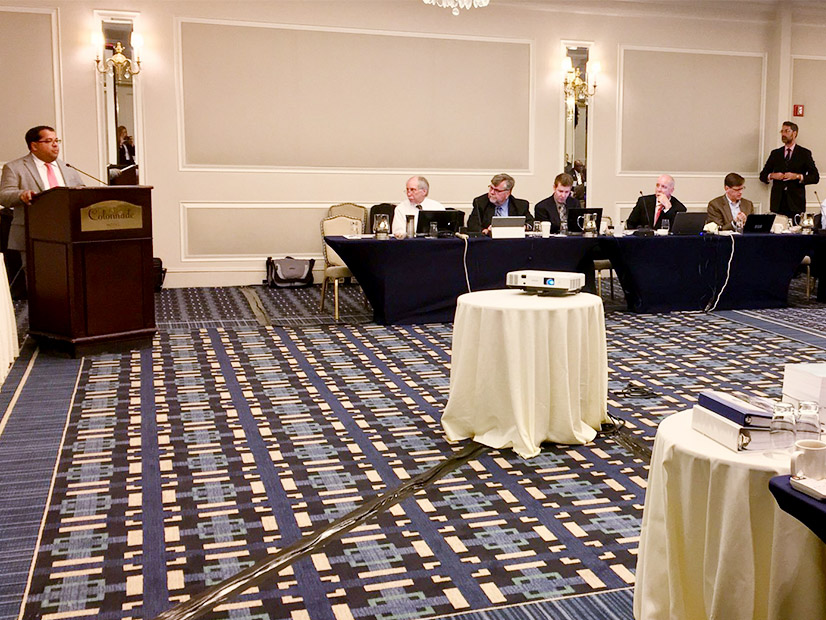
BOSTON — For the first time since March 2020, following 20 months of exclusively virtual meetings because of the COVID-19 pandemic, the NEPOOL Participants Committee on Thursday met in-person, at the Colonnade Hotel in the city’s Back Bay.
There were strict safety protocols in place to attend the meeting. Everyone who attended had to be fully vaccinated and have provided verification in advance of the meeting. There is also a citywide mask mandate in Boston, which meant that all attendees wore masks or face coverings at all times except when actively eating or drinking.
ISO-NE Responds to NESCOE, Pledges Annual Open Board Meeting
In response to the New England States Committee on Electricity (NESCOE) vision statement last October and the organization’s report to the region’s governors on “Advancing the Vision,” ISO-NE’s Board of Directors issued a formal response Sept. 23, which the committee reviewed last week.
Among the initiatives and studies is a pledge to hold an annual open meeting. Beginning next year, the board will hold an open meeting focused on the electricity markets on even-numbered years; in odd-numbered years, the meeting will focus on transmission planning, with a potential link to the biennial Regional System Plan public forum, which was most recently held on Oct. 6. (See related story, Overheard at 2021 ISO-NE Regional System Plan Forum.)
The board said it has directed RTO management to prioritize transmission planning studies and analysis of market designs in support of the states’ clean energy goals.
“The board remains committed to working with the states and NEPOOL to achieve the region’s goals for a clean energy system that is reliable and efficient,” the board said.
ISO-NE has already begun its 2050 Transmission Study, the board noted, as requested by the states. The study will take a high-level look at scenarios to reliably incorporate clean energy and distributed energy resources beyond the RTO’s current 10-year planning horizon. The RTO will also work with the states to draft corresponding changes to the tariff to enable this type of transmission study on a recurring basis, the board said.
The board also noted that ISO-NE is evaluating “wholesale market frameworks that reflect states’ policies” through a series of working group sessions of the PC. The group has been considering a regional net carbon price, a Forward Clean Energy Market and a hybrid of the two concepts. Its work will be presented in the second quarter of 2022. The RTO is also developing a proposal to eliminate the minimum offer price rule from its capacity market.
Energy Market Value Falls
ISO-NE’s energy market value for September was $497 million (through Sept. 29), down $188 million from the updated August valuation and $290 million higher than the same month in 2020, according to COO Vamsi Chadalavada’s monthly report to the PC.
September natural gas prices were 12% higher than in August. Average real-time hub LMPs were 5% lower at $46.48/MWh. Daily uplift payments totaled $1.3 million over the period, down $2 million from the adjusted August value and $1.1 million less than September 2020.
Four new resources totaling 325 MW applied for an interconnection study: one battery and three solar-plus-solar projects, with in-service dates ranging from 2022 to 2023. The RTO is currently tracking 294 generation projects that total approximately 32,907 MW.
